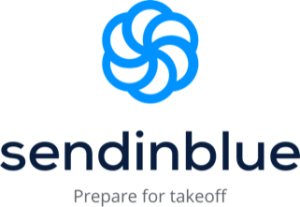
My Guest:
Amy Sample Ward: “The Activist” Activates Activism

Amy Sample Ward returns for a conversation about CBS’s proposed show “The Activist,” the backlash that ensued, the replacement show, competition, celebrity, and our proposal for an inclusive and appropriate media portrayal of true social change work. Amy is our technology and social media contributor, and the CEO of NTEN.
Listen to the podcast
Podcast: Play in new window | Download
Get Nonprofit Radio insider alerts!
I love our sponsor!
![]() Turn Two Communications: PR and content for nonprofits. Your story is our mission.
Turn Two Communications: PR and content for nonprofits. Your story is our mission.
We’re the #1 Podcast for Nonprofits, With 13,000+ Weekly Listeners
Board relations. Fundraising. Volunteer management. Prospect research. Legal compliance. Accounting. Finance. Investments. Donor relations. Public relations. Marketing. Technology. Social media.
Every nonprofit struggles with these issues. Big nonprofits hire experts. The other 95% listen to Tony Martignetti Nonprofit Radio. Trusted experts and leading thinkers join me each week to tackle the tough issues. If you have big dreams but a small budget, you have a home at Tony Martignetti Nonprofit Radio.
View Full Transcript
Processed on: 2021-09-25T02:33:23.427Z
S3 bucket containing transcription results: transcript.results
Link to bucket: s3.console.aws.amazon.com/s3/buckets/transcript.results
Path to JSON: 2021…09…560_tony_martignetti_nonprofit_radio_20210927.mp3.mp3.198348245.json
Path to text: transcripts/2021/09/560_tony_martignetti_nonprofit_radio_20210927mp3.txt
Hello and welcome to tony-martignetti non profit radio big [00:01:44.64] spk_0:
Non profit ideas for the other 95%. I’m your aptly named host of your favorite abdominal podcast. Oh, I’m glad you’re with me, I’d suffer the effects of gastro paralysis if I had the stomach, the idea that you missed this week’s show, the activist activates activism. AmY sample Ward returns for a conversation about CBS proposed show the activist the backlash that ensued the replacement show, competition, celebrity and our proposal for an inclusive and appropriate media portrayal of true social change work. Amy is our technology and social media contributor and the ceo of N 10 On Tony’s take two last chance planned giving in the pandemic era were sponsored by turn to communications pr and content for nonprofits. Your story is their mission turn hyphen two dot c o here is the activist activates activism. What a pleasure to always welcome back AMy sample Ward. You know who she is for pete’s sake. She’s our technology and social media contributor And Ceo of N 10. Her most recent co authored book is social change anytime everywhere about online multi channel engagement. They are at AMY sample war dot org and at a me Rs 40 AMY. Welcome back. [00:01:46.44] spk_1:
Thanks for having me. [00:02:20.04] spk_0:
Absolutely. And I’m honoring your new pronouns. Yeah, So we’re we’re talking about the activist. And um, I want to, I don’t want to give the impression that I’m defending the activists. I mean, I think it’s indefensible. But you know you and I had some back and forth about it a little bit and I’m not as I had some thoughts that I felt like didn’t come out in the, in the whole conversation, but I mean it’s been withdrawn in its original form, so [00:02:21.41] spk_1:
shifted in four matter whatever document [00:03:19.24] spk_0:
emphasizing the indispensability of it. But there was still some things that I wanted to I want to talk about. So just that everybody’s aware on the same page. The activist was a television show from cBS Global citizen and live nation and amy feel free by the way to step in if you think I didn’t explain it. Well, it was a competition. It was a competition among six activists in health, education and the environment to activists per mission. And they were competing for basically social media attention. And the winner was going to present to The G-20 summit in Rome in in late October and they were tasked with competing in missions, media stunts, digital campaigns and community events. And so, uh, [00:03:20.82] spk_1:
sounds like the world as I know it for nonprofits [00:03:34.34] spk_0:
everyday. So Alright, yeah, not an accurate, not an accurate depiction of activism. Right. But so what were you what were your thoughts? God, I described it. What what what were you your thoughts about the activists? [00:05:39.44] spk_1:
I have a number of thoughts and I think that, you know, a place that we could start is just what what we just said there about the competition piece. And and then I really want to get into the celebrity or the celebratory izing of what this work is and um, you know, competition, it is a very dangerous mindset that exists in the sector already, you know, and isn’t serving us by thinking we’re in competition with each other. And I think there’s a large movement of practitioners and social change work and organizations trying to really force and invite people to let go of that kind of for profit world adopted mindset that we’re in competition and we’re fighting over the dollars and we’re fighting over the credit and we’re fighting over who gets the attention and instead like, where has that gotten us? Is the world dramatically better? I would say no. So what happens if we’re not in competition? What happens if we believe that together we have all the resources that we have, all of the, um, you know, materials that we need and we really start doing that work in collaboration. What does it look like to really work in deep collaboration in community with each other, not just with the community members that we’re trying to support. So just off the bat, it felt like such a slap in the face of that work of the sector to say, hey, we’re, we don’t have to be in competition. Um, and I think we’ve seen the same backlash that came to the show, came to foundations for years, who were running the exact same types of competitions, you know, hey, whoever gets the most likes and votes in this week, we’ll get our foundation grant like those happen for a number of years, you know, and they stopped because so many folks organized to tell foundations like, oh my gosh, this is obviously so harmful. And it is, is naturally only going to get the same people who win that could have already had the most resources anyway because they have the most resources to mobilize people to help them win. Right? Like it’s not actually creating an opportunity for folks that are unknown to become the recipients of that attention. Right? [00:06:01.44] spk_0:
Yeah. And I agree on the competitive aspect. I mean I’m railing regularly with guests against the scarcity mindset, which, which is what competition creates. That it’s, you know, aligned with that is the zero sum that if they, if they’re getting something, then I’m not getting it [00:06:21.64] spk_1:
right. If somebody’s winning the activist, the rest of us lost the activist. Right? Like, [00:06:28.24] spk_0:
right? Say it again. [00:06:29.18] spk_1:
I said, if one person wins the activists than all the rest of us lost, [00:07:22.54] spk_0:
we’ve all right, that’s right. That’s right. Um, so I, I agree that the competitive way that they organized it was it’s antithetical to what we’re all what we’re all trying to achieve. And I know just bring it down to like nonprofit radio ground. It’s antithetical to what lots of guests and I have been talking against for the 11 years. I’ve been doing the show, it’s just, we’re not in competition. We should be in collaboration? And you’re and you’re seeing more grantmakers recognizing that over not that’s not just so recent like over the past but probably 10 years or so that fortunately that that collectivism uh collectivism leads to a grant was pretty short lived. Right? Right? And I think [00:07:43.84] spk_1:
you’re right remember foundations didn’t just stop doing the hey how many likes do you get you get a grant competitions? They also moved the other way and said hey we will fund, coalitions, will fund collaborative work, will fund intentionally in that way. Yeah. Yeah. But on the other side of things, the celebrity piece I think does a couple of things making it seem like activism is this celebrity level, you know like you’re on the T. V. Show because you’re with whoever like Usher, you know [00:08:08.04] spk_0:
these celebrity Julianne, I don’t know if it’s Julianne huff for Julian, how are you? And uh Priyanka chopra Jonas so [00:10:24.14] spk_1:
creating this like celebrity nous around around quote unquote activists around social change work more broadly because I don’t know what people think activism of, you know, I think is really damaging, it makes it feel like it is something reserved for a famous person, right? And that I think we already really struggle in the nonprofit sector with this patriarchal white dominant view that what we’re doing in social change work is actual charity, right? And it’s like some old white dudes, white wife’s pet project, right? And so of course you’re invited to the fancy celebrity balls because like you are also in that class, right? And and the work of social change is not like high class, right? Like we’re relegated down here, which is like we’re trying to get rid of classism. So the idea that we would reinforce that kind of elevated these are the fancy people that get the credit for doing the work and the rest of us aren’t um I think it’s a really hard kind of mirror to hold up in 2021 again to a lot a lot of folks, not just you and I like none of this is new, right? Lots of people have said this, but I don’t know that what the world was needing was a couple people to be elevated as if they were celebrities for for doing important work or that it be presented as something that those single people have done. There is no work to change communities to resource communities, to change our world, that someone single person has done. So, again, the celebrity pieces very exclusive. It’s like of all the people in Hollywood, right? Like these are the people that made the movies and got the awards. So it’s also like of all the people doing this work. These are the famous people and it’s it’s that’s it, they’re separate. It’s very hard and exclusive to be part of that world, I don’t know does any favours. [00:11:19.94] spk_0:
And I saw that Julianne, h you know, apologized and said that she was not suited to be a judge, not qualified to be a judge. Of course, that all she just only did that after the after the backlash, she didn’t realize upfront that she’s not qualified to judge social change work, which she may not even know that phrase. You know, we’re not I’m not giving her much credit, but she didn’t realize upfront that she wasn’t qualified to judge activists. Yeah, this part is where you know, see I think that you’re you’re not giving enough credit to future social change workers and volunteers. I feel like people are bright enough to recognize that poverty doesn’t get solved by. Usher coming to a club event in Los Angeles, I [00:11:20.76] spk_1:
don’t know that you can save [00:11:21.87] spk_0:
1000 people. Well, I mean looking [00:11:32.24] spk_1:
around the world right now, it does not seem that people are understanding or acknowledging How things will change and what the work is to change them. Like just looking at examples from 20, alone, it doesn’t seem like the world is all on board for [00:12:43.74] spk_0:
it’s time for a break. Turn to communications attention spans are short and there is an overwhelming volume of media. We all know this. So how do you get heard and remembered you find your core message and you make it concise turn to, we’ll get you there that can help you with that. So that as they get you placed in those major media outlets that you’ve heard me name and in podcasts, in blogs, in conferences, in op ed pages. Your concise core message resonates. They will help you hone your message and get it heard because your story is their mission turn to communications turn hyphen two dot C o. Now back to the activist activates activism. What examples are you looking at? [00:12:51.24] spk_1:
I mean, we could look at schools, we could look at rent relief, we could look at college loan forgiveness. We could look at all of these topics where the residents of what’s needed [00:12:57.96] spk_0:
activists behind each of those. I mean, I was thinking of, I was thinking of the grassroots black lives matter. [00:13:11.84] spk_1:
Oh totally. I’m not saying there aren’t movements there, but the idea of the country. Sure. But I think there’s still a lot of folks who feel like and [00:13:12.43] spk_0:
me too, and [00:13:38.04] spk_1:
we should just be able to have those things, you know, go a certain way and not like Black lives Matter. Didn’t start in 2020 you know, and going for years and years and I think a lot of folks deep in the Black Lives Matter movement would say yes, there have been important winds, there have been important changes and look at where we are at like this is a long path and not everybody is here for long path work, you know. [00:13:51.24] spk_0:
Oh yeah, I don’t, not everybody is here for a long path work. No, [00:13:53.69] spk_1:
I mean, how many folks just use that example, how many folks put up a, you know, we whatever kind of empty we we support Black Lives statement last summer and have taken it off their website and have done no material change in their work. Right? [00:15:29.54] spk_0:
All right. Well, those are among the yeah, those are among the frivolous people or entities, corporations, whatever they did it for publicity. It was it was good for a few months. They gave their corporate promise not to. Uh well, now I’m shifting gears a little bit, but the corporate promises not to give too uh folks in Congress who voted to decertify the election, you know? But those promises only lasted a month or a couple of months or something. And they found back channel ways to do it maybe even during maybe when their pledge was still up. But yeah, now, uh okay. I just All right. I guess you’re looking more at the negative examples I’m looking at. I mean, there was activism beginning with uh when as much as I don’t like to do politics on the show, I went to the I went to the the rally right after trump was elected, the january january 2017 rally in Washington D. C. The women’s. The wasn’t called women’s March. And yeah, um I mean, there’s are a million or a million people sure showed up and and protested what looked like a, well, it looked like at the time, it’s gonna be a white, you know, white dominant narrative party and emerged to be that and much more in terms of. [00:16:12.04] spk_1:
But I actually think these examples you’re bringing up our disproving your point, because the point you were making, I think was something we talked about when when the when the cameras weren’t rolling, when the when the recording wasn’t going of, you know, a show like, this is gonna really put this kind of work in the spotlight and it’s going to bring more people into the sector, but the the stories that you’re bringing up or showing that, like, well before this show, which hasn’t aired yet, there were plenty of people already showing up. So I don’t know that we have been waiting on a show that celebrities is what activism work is to have people feel like doing social change is something that they can and should be a part of. [00:16:37.34] spk_0:
Well, all right, that was an early opinion to when I was before, I had done a lot of research before, I thought more about it. Um I just I think, again, I think it’s it short changes folks to think that they believe that celebrity is the the root of activism, celebrity is essential to activism. [00:18:28.14] spk_1:
I’m not making the point that it’s essential to it, but I’m saying that when you remove people from the work and make them celebrities, it is now detached from the work and so it is, it’s reinforcing a weird dynamic in the sector that the people that will get that visibility are then removed and are up here as celebrities, you know, I think even just to keep on the women’s March example, a lot of the folks that were the core organizers of that very first Women’s March, which has continued and taken on other work as well, you know, have have faced a lot of harshness when put in celebrity spotlight for their role in that both people tearing them apart, finding other things, they’ve been a part of in their past and claiming that because they worked on some other campaign now they’re actually have some secret motive to tear this movement down, that it hasn’t been good when visibility has come to them, but so I just, I think naming what celebrity does to a movement is important as part of what I think folks were asking the organizing non profit to account for, you know, I think part of what folks were calling and giving feedback to global citizen about wasn’t like, hey, this is an awful show format, it was take accountability for what is going to happen if you are removing these people and you’re turning them into celebrities instead of honoring that they are people doing work who are full humans, right, they are not about social media likes and media blitz competitions, like we have to give space for people’s wholeness, otherwise we’re just gonna chew them up and spit them out, like, like we do with a lot of other celebrity culture, right? And that’s not going to be good for the movements they’ve been deeply invested in. [00:18:40.54] spk_0:
And and the I think the backlash itself demonstrated that there are people who recognize that the work is deeper than a culture of celebrity, [00:18:52.66] spk_1:
Right? [00:19:38.14] spk_0:
You know, and so I don’t I don’t think those who are currently in social change work are the only ones who recognize that it’s deeper work than a culture of celebrity. That’s what I’m saying. And even folks who are, you know, the current teenagers, I think as I think they would recognize, I mean they might have been drawn to the show for the wrong reason, but I think as they, as they aged and for those who emerged into social change work and true activism, that they would, well, they’d eventually face the harsh reality if they went in with, if they went in with the wrong impression, that would quickly be uh quickly be defeated as they didn’t get any jobs because they kept telling interviewers that they wanted to rub shoulders with, [00:19:48.16] spk_1:
they wanted the celebrity position. [00:20:42.74] spk_0:
Yeah, right. Um but I think they would have been smart enough. I think even young folks are smart enough to have to have come to the to recognize that it’s it’s more than celebrities in a, at an event in a club. All right now, all right, So I want to give global citizen there do because they did uh there was a joint statement from CBS and global citizen and live nation. And then Global citizen also had its own statement which said in part global activism centers on collaboration and cooperation, not competition. We apologize to the activists, hosts and the larger activist community. We got it wrong. It is our responsibility to use this platform in the most effective way to realize change and elevate the incredible activists dedicating their lives to progress all around the world. So they came around and that’s a to me that’s a very that’s a very responsible apology [00:20:49.54] spk_1:
to Yeah, I mean it doesn’t account for [00:20:52.44] spk_0:
in fact they got into it. Yeah, it was [00:20:54.72] spk_1:
like this all of it happened the same [00:20:57.91] spk_0:
thing I said about Julian H where were you when we were when the producers first approached you. [00:21:27.24] spk_1:
Yeah. And they say that accountability is, you know, demonstrating that you actually heard the feedback and will change. So I I hear that there was like, we get the people are mad and we will change the format, but but I think it would have been also awesome to hear like, hey, honestly, this is what we have been looking at and what we were valuing when we made that decision and here’s how we’re going to change those values. So this doesn’t happen again because because global citizen is a very prominent, well resourced organization themselves. And [00:21:43.04] spk_0:
so [00:21:58.44] spk_1:
as far as as far as apologies go, you know, versus a statement. But had it been more of an actual apology, that’s what I would have wanted to hear. Hey, this is what we were valuing. This is how we made this original decision and this is how we’re going to change those values so that we don’t make this decision again. [00:23:04.24] spk_0:
I agree, but based on the way they operate. I’m not sure that they are capable of that now. I didn’t know a lot about global citizens, but they give points for activism and you trade in those points for rewards like um like V. I. P. Experiences like tickets and gift cards and subscriptions. So you know, like earned 20 points call congress, I was just on the website earlier. 20 points support Covid 19 relief for LGBT plus people. uh you get 10 points if you end the pandemic for all, which didn’t seem right to me. But if the LGBT community gets 20 points, how come the whole world, everybody everybody plus LGBT only gets half. That makes sense. That part didn’t make sense to me. I thought it I thought if LGBT is 20 then the whole world should be like 200 I thought or 2000 because there’s so many more, you know? But all right. So I [00:23:05.14] spk_1:
mean their fundamental they give the business model is already based on currency of how you act and there’s [00:23:15.14] spk_0:
get VIP backstage experiences. So, I [00:23:50.94] spk_1:
Mean there’s a reason why they were the ones about 1.8 million us non profits while they were the organization in this deal of course, because they are ones that are already set up kind of doing work in that way. But maybe the feedback was more than just the show, you know, like maybe there was something to here in that reaction that was about what they are valuing in the work versus just the the tv format of this, it [00:24:17.74] spk_0:
was not their business model and I don’t think they want to hear that it’s all right. That’s why I say, I don’t think they’re capable of the kind of apology that you’re talking about because I don’t think they want to question their business model in their core values, they get, you know, they have millions of activists and billions of people affected, you know, like, so, so if I sign a petition to end the pandemic for all, doesn’t that count as seven billion people affected because I’ve signed a petition for the whole world is that that’s you know, and I [00:25:31.34] spk_1:
think this is the difficulty of um this this time we find ourselves in of being alive and In 2021 of there are so many things at least on my list, I’m sure on your list too that I think would need to dramatically change or go away and be formed a new in order for us to have a world even slightly close to an equitable world and if there’s that many things to change and there’s that many needs, you know, there’s going to have to be a whole lot of ways that we try to get there and lots of different missions, lots of different versions of the same mission, right? Like we have to try everything and anything to try to get there within reason, not like truly trying anything and everything. And so, you know, the model of global citizen, not for me, I’m not going to work there and I’m not going to like take the point based actions, are there people that take them? Yes, [00:25:33.95] spk_0:
great. [00:26:39.84] spk_1:
And so like there can there and maybe that will go away at some point in this very long journey that hopefully everybody has signed on to right of getting to a better world. But it’s hard because I feel challenged to hold on to like that’s not for me. And but maybe it’s for someone, right? Like just because I don’t like that flavor ice cream doesn’t mean that flavor of ice cream shouldn’t exist. And so like how do we how do we take a like, harm reduction mentality versus and I like idealistic, there’s some perfect rubric um and not that I think you’re saying that, but for me, I think, OK, well if we’re if we’re if we’re going to say harm reduction because we can’t avoid that right now, then maybe it’s not doing a show that’s profiling people through global citizen, that’s profiling people through local grassroots, you know, like interviews and finding folks who are doing work outside of traditional models or you know, whatever it might be like maybe the, maybe the invitation then for harm reduction in creating some ridiculous tv show is sourcing the folks that are going to be featured in a different way. [00:28:45.44] spk_0:
It’s time for Tony’s take two last chance planned giving him the pandemic era. It’s your life. If you miss it, I don’t know what else to say. It’s hosted by J. M. T. Consulting. Thank you. Thank you very much. JmT. It’s on September 30, 2-3 eastern time and here’s what’s on the agenda. What plan to giving is who your best prospects are, where to start your program. And how does plan giving fit in our pandemic era to make your reservation. You got, it’s free by the way, this is free, but you got to make a reservation JMT consulting dot com go to events and then middling speaker series. Actually, it’s not middling, you know, it’s not lackluster either where I would be the only person listed. It’s the expert speaker series. Yak. Yak Yak, that’s where you go, Expert speaker series, I hope you’ll be with me September 30, let’s talk about planned giving in our pandemic era and yeah, all important your questions. The most important part I think that’s the most important part of any webinar because that puts the focus on what you’re thinking. What you didn’t quite grasp how the topic relates to your work. The questions the all important Q. And A. Of course it’s included. I didn’t mention that in the agenda but and I don’t want to I don’t want to assume that it’s uh it’s there just trust me plenty of time for Q. And A. That is Tony’s take two. We’ve got boo koo but loads more time for the activist activates activism which I am kind of enjoying saying. I’ve always thought about doing a podcast that elevates grassroots work. But yeah but you have to be more of a storyteller. Yeah. I’m not my podcast. This show is not about storytelling. I’m not a storyteller I would need a producer who’s a good storyteller. You [00:29:01.36] spk_1:
can chat to somebody. [00:30:02.24] spk_0:
Yeah I can chat. I know but it’s not it’s not gonna it’s not gonna go is it not gonna be that it’s not gonna be that interesting beyond the nonprofit community. I’m talking about a show whether it’s a podcast or T. V. Or Youtube stream whatever Livestream whatever it is that tells the story of a community of nonprofits or a single non profit and how they’re doing their work, how they’ve evolved how their work is evolved. Maybe they have a pivoted at some point because they realized they weren’t not, maybe not only doing well, but we’re doing good, but maybe they’re doing harm. So they had to change and tells that story the arc of a nonprofit grassroots work that, but as I said, that takes a storyteller and the and the global citizen. I mean, that’s a that’s a counter example, the activism around global citizen as a counter example to what I said earlier about having faith in future activists, because they’re a bunch of people who are just doing collectivism and they’re getting V. I. P. Experience is after they trade in their their 2000 points. So I realized that’s a counter example of what I was saying, but they’re not the folks that I’m paying attention to [00:30:08.37] spk_1:
write well and maybe, you know, [00:30:10.48] spk_0:
have faith, I have faith in humanity, is what I’m saying. [00:30:12.88] spk_1:
Yeah, I’m hopeful that [00:30:15.45] spk_0:
future social change workers, [00:31:00.84] spk_1:
how they’ve changed the format. Of course, we’re gonna get to I have watched it or whatever, but, you know, changing the format to being a doctor who series, presumably then like, each episode, just about one of them or whatever, really does honor the community of work. You know, whatever movement there in not just that person, and I think in doing that it could contribute to the point you were trying to make earlier then people see that and think they could be part of it because it isn’t about, oh, like, what are the odds that I would be Sarah or you know whoever the person is versus oh I could be in that movement right? And that movement is accessible to me. Well that’s the big piece that I think is important. [00:31:40.14] spk_0:
Yeah, I like it’s accessible. I I could see myself as part of that well because it removes the competition, removes the celebrity right? Two of the most offensive parts of the whole endeavour. The initial the initial endeavour. Alright, alright. Um something else that we chatted about an email. Uh you know I have to be careful but I don’t want us to be as a community so self righteous that we think we can’t be accurately portrayed in, in in popular [00:31:42.91] spk_1:
culture. [00:31:44.84] spk_0:
Um and I, you know I went back, you know I was thinking remember the philanthropist [00:31:51.84] spk_1:
kind of, it was a name but I don’t, I never thought it [00:31:56.33] spk_0:
was, it was prevalent. It was, I’m not citing it as a good example of popular culture. [00:32:01.83] spk_1:
Don’t my netflix queue. [00:32:15.34] spk_0:
I don’t even, I think they struck it. I don’t even think it’s available but it was a jet setting billionaire. He did good deeds motivated by, he saved a uh huh a black child in Nigeria from a hurricane or something and it was a pivotal moment in his life. [00:32:21.36] spk_1:
White White savior is that [00:32:35.74] spk_0:
exactly. Uh I think he had his own jet or something. I don’t know but he had the means to travel around the world and do good deeds for, for less fortunate people of color, uh, throughout the world [00:32:36.84] spk_1:
how, and how grateful the world was for him [00:33:17.94] spk_0:
as well. So that, that was frivolous. That was from. Um, but I, so I’m not trying to extreme these things together and just, you know, another example of that, that was a bet that was a bad attempt. I just, so there’s, there’s a philanthropist. Now there’s the activist. I don’t want us to get to a point where we feel that we, like I said that we, there can’t be an accurate portrayal of our, of our work, uh, in, in, in, in media and popular culture because because there’s no, there’s no profession that’s accurately portrayed. Sure. I mean, you know, law and order, law enforcement doesn’t happen in half hour bites from investigation to verdict. It just doesn’t, it doesn’t work that way. [00:33:28.09] spk_1:
I mean, the office seemed pretty accurate for what I imagine is a small, very small, small corporate office. [00:33:53.54] spk_0:
Um, it was even better when it was Ricky chavis. Um, yeah, all right. The act right. But they weren’t, they weren’t activists, but they were Dunder Mifflin. Um, so that’s all, I just don’t want us to, like I said, like I already said, I don’t want it to be too self righteous that the work has to be so accurately portrayed that no portrayal will suffice. [00:34:25.74] spk_1:
Sure, but I guess like what, what’s the show that does that, that like, is accurately portraying the work is not sensationalizing. It is not, you know, making light of it or making it seem frivolous. Like, what is that? Like a lot of, a lot of movement work is emails, google, docs, socializing ideas with different partners, [00:34:32.58] spk_0:
watch that show or listen to that podcast. [00:35:03.74] spk_1:
Right. And so I guess that’s my question. Like what’s what’s the show that is an accurate portrayal? That isn’t, that isn’t either sensationalizing it and making it feel like every nonprofit is out there saving babies every day and like, and then they’re not. So then our donors then saying, oh well, like you’re so, let me go find the one that is right. Like what I’m willing, I’m willing to hear your plate, but I want to hear like an example that that convinces me, well, there isn’t one [00:35:43.24] spk_0:
yet, but it’s the show that will, when I find the right producer, it will tell a genuine and not heartstring, not, not not a heartstring story, but we’ll tell a genuine story of successes and failures and how, how that organization or that community of organizations have improved their, you know, improved the water in their community or, or sheltered animals or sheltered mothers and and Children right? There, there is a, there is a space for a heartfelt genuine story that’s not, not sensationalized, [00:35:52.09] spk_1:
right? [00:35:53.74] spk_0:
Nobody’s produced it yet. Right. [00:37:15.43] spk_1:
Well, and I also think there’s a, I would anticipate even somebody looking to produce that would rely on some of the same structures that many others have relied on which is like it’s a five oh one C three registered organization. They have these types of staff, they have this type of funding, they’re in good relationship with a foundation, like the things that are already a kind of reinforcing more privileged organizations now, even if they’re small versus what’s the space for the group that has chosen never to file with the I. R. S. And it’s not A C. Three and you know, maybe fiscally sponsored or just operating on mutual aid. Like how do we make room in the storytelling of what the work is to say that it isn’t just a five oh one C. Three that has a certain amount of income that files and 9 90 right? Like there are a lot of people and there’s going to have to be a lot of people doing work in a lot of different ways for things to change because also like maybe the I. R. S. Should change like, right? Like there’s a lot of layers to what could and should be happening for us to get out of us a self perpetuating cycle of of maintaining social issues so that we can maintain a sector that’s like Top five of of the sectors in the US right? [00:37:42.33] spk_0:
Yeah. You’re you’re trending towards the uh you’re trending toward the you’re not self righteous. I know you but yeah if you want there to be a if you want there to be something that people pay attention to it’s got to be I don’t want to say it’s got to be mainstreamed but [00:37:47.03] spk_1:
You feel like if there was a show let me clarify you are feeling that if there is a show that’s profiling like the honest good work especially at the grassroots level and it included folks who did not have a registered 501 C3 that that would be harmful. [00:38:31.62] spk_0:
Now I don’t know I just don’t. No actually it could be beneficial. Yeah I was focusing more on the 1.7 or eight million charities that are 501 C threes. Sure. No but there’s of course there’s space for non non registered activist work. Just we have to find those people and tell their stories just as an amplify their stories just as well. Just as well as we amplify the five oh one C threes [00:39:17.92] spk_1:
right? That’s my point. My point is just remembering that we’re not even their ideal break was being like create a great show. We don’t borrow. They’re like oh well they must they must check these boxes right? And change that mindset in ourselves. Even as we were imagining some wonderful show that all of the producers of T. V. Shows are listening to this radio and now we’ll contact you tony and want to produce it you know? But like even even as we’re imagining things, we’re challenging ourselves to let go of structures that don’t serve us so that we can imagine differently because I think that’s a big that’s needed. I [00:39:48.82] spk_0:
was being myopic. Yeah, I agree. That could be a very genuine heartfelt story. How come how come you don’t qualify or never pursued your I. R. S designation because then people could give to you and and they were doing a tax deduction. How come you don’t participate in that structure is the reason it’s just you don’t feel like you have access, you don’t feel you have the resources or you just don’t want to be part of that structure. Right? Okay. Yeah, you’re right. I agree those those are genuine heartfelt, important and impactful stories too. So nobody’s done this show, but I’m sure there’s a space for it. I mean, I don’t see this on cbs [00:39:59.53] spk_1:
but public, [00:40:01.40] spk_0:
public radio, public television. [00:41:49.81] spk_1:
Right. Right. And I think just to tie it back to, you know, the activist where we started this conversation, I think, you know, if if a group, whether it was netflix or cbs or NPR came For example here to Portland and said, Hey there’s some really strong mutual aid efforts happening here. We want to profile you on this show, it will be 40 minute beautiful documentary. I imagine it would also cause a lot of challenge for the community to say who gets to have their voice. You know, like the premise of mutual aid is that it’s like all of us coming together to support each other. And so what what does it look like again? Even even if it isn’t positioned as a competition for G 20 access, what does it mean in that moment to celebrities or give credit to certain people within within quote unquote, you know, social work. And I think well I’m not presenting that as a challenge. Like there could never be a documentary please. I would love there to be way more people profiled for doing change work. My point is saying even even in this other scale or premise of the show or storytelling, I think it’s important still to ask the questions of are we creating a dynamic that is harmful? Are we allowing there to be space for lots of voices and not, you know, inadvertently trying to put one person’s face on the episode tile as if they’re the face of that movement, right? Like how are we honoring this is community work and not just um you know, maybe unintentionally from, from lack of you know, paying attention doing the same cycle again and turning things into one person’s story. [00:41:54.31] spk_0:
Alright, alright. I’d like you to be an advisor on the [00:41:57.59] spk_1:
show, [00:41:59.76] spk_0:
but I want you to agree that we don’t want to let make perfect be the enemy of the good. [00:42:14.50] spk_1:
No, no. And I think that we can achieve that by having really intentional decision making. Instead of running with opportunity right? Like going slower with intention than going faster without it [00:42:24.60] spk_0:
going slower with intentions. Yeah because we do want it we right we want to honor the voices and the work. [00:42:28.60] spk_1:
But I and I want some fancy title. So when the credits go pie people are like what is that? You know look at [00:42:35.39] spk_0:
you you just you just contradicted everything you just said [00:42:48.60] spk_1:
I want you said that that I’m a producer on the show. So you already I want something that doesn’t say producer. I it’s [00:42:49.55] spk_0:
like you’re already you’re already elevated yourself already making it about you. You just said we don’t want to make it about one person. I said advisor you elevated yourself the producer. [00:43:15.90] spk_1:
I don’t know what the difference in those words is. So what a contradiction. I don’t work in tv. What’s the, tell me what the difference between an advisor and producers. I thought producers like just I always thought a producer was like a convenient name because you didn’t you weren’t like actually part of the show. [00:43:20.10] spk_0:
I think producers are they get the money, you give the money or they make the money or they find the money they find it among their connections and their and their corporate the media people they know uh they like they make it happen [00:43:35.70] spk_1:
well so I’m gonna need okay so if I’m going to advise you on something that I’m gonna need to go to some like some class about what what you do to make a T. V. Show because I have never been involved in that world. [00:43:48.70] spk_0:
All right. And I’m not restricted to television either. [00:43:52.60] spk_1:
Okay. Cool, interpretive dance. [00:44:17.89] spk_0:
That’s too esoteric. Alright. Somewhere between interpretive dance and television. Okay. There’s plenty of media space. Alright. Alright. Um Yeah, I I believe there’s a space for a show that people will will follow that tells the story correctly. Yeah. All right. All right. Anything you want to leave us with? I’ll give you the last word is [00:44:45.99] spk_1:
I will You’ve already said that. You agree with me. So, I’ll say I agree with you on that. There is something here. I don’t know that it’s the activist but hopefully we can as we explore. I think a lot of different storytelling podcast. You know like there’s there is a a rich history of people of being storytellers and finding places where we elevate well, the work to change our world as something we prioritize in the stories we tell. [00:44:57.29] spk_0:
I agree. I agree. Alright. Maybe we’ll watch the documentary uh whenever it comes out and maybe [00:45:00.66] spk_1:
we’ll have a watch party. [00:45:04.79] spk_0:
Maybe we’ll review at least the first one. We’ll give it give it an even shot. The first. Yeah. Used to be a doctor series. I didn’t catch that much. Is it supposed to be a series? Okay. Yeah. All right. So [00:45:13.33] spk_1:
I think it’s still multiple episodes and like you know. All [00:45:17.11] spk_0:
right, we’ll give it a shot. Give the first one a shot and see what they do. [00:45:20.89] spk_1:
Okay. I think we should have non profit radio watch party. Have everybody tweet while they’re watching it or something, you know, [00:45:30.69] spk_0:
we could do that with the hashtag uh Alright, thank you very much. Good to talk to you. [00:45:32.35] spk_1:
Yeah, thanks for having me. Thanks for the good conversation. [00:45:44.79] spk_0:
Thank you amy sample word. Our technology and social media contributor And they are ceo of N 10 at a me sample ward dot org and at amy R S Ward. Thanks again. [00:45:51.09] spk_1:
Thanks tony [00:46:21.58] spk_0:
next week, Jeanne Takagi returns with risk management one and I am going to miss saying the activist activates activism. The activist activates activism. It’s very clever. It must it must have been written by the intern if you missed any part of this week’s show, I beseech you find it at tony-martignetti dot com. We’re sponsored by turn to communications pr and content for nonprofits. Your story is their mission turn hyphen two dot c. O [00:46:24.58] spk_2:
our creative producer is Claire Meyerhoff shows, social media is [00:46:27.84] spk_0:
by Susan Chavez. [00:46:54.98] spk_2:
Mark Silverman is our web guy and this music is by scott stein, thank you for that. Affirmation scotty Be with me next week for nonprofit radio big non profit ideas for the other 95% go out and be great. Mhm. Mhm









